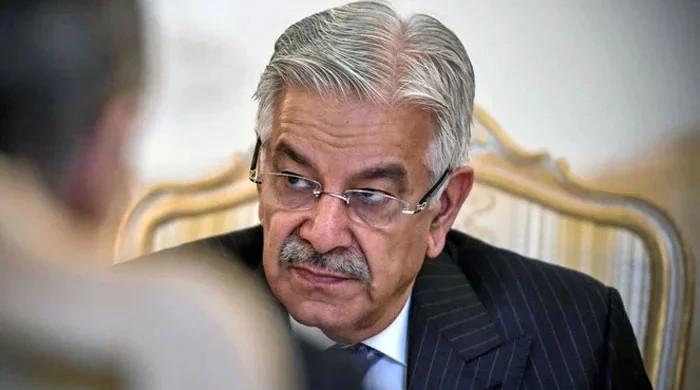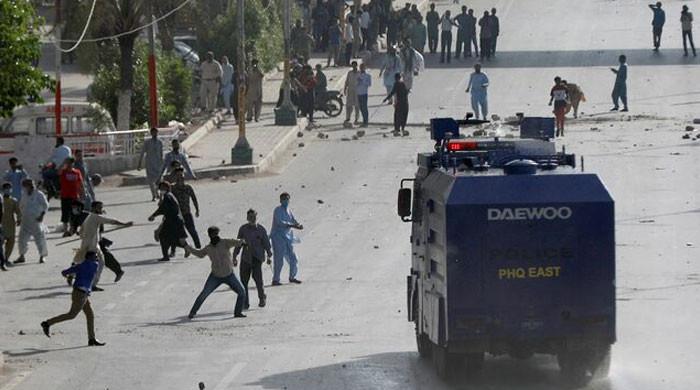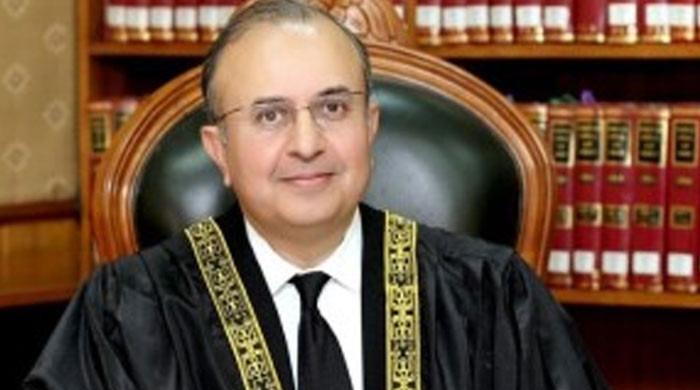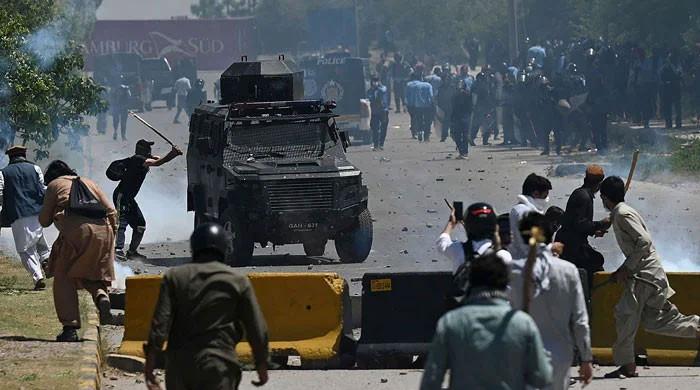Karachi — a hub for aliens
Karachi's population has increased by 3.7 percent every year since 1998
November 27, 2016
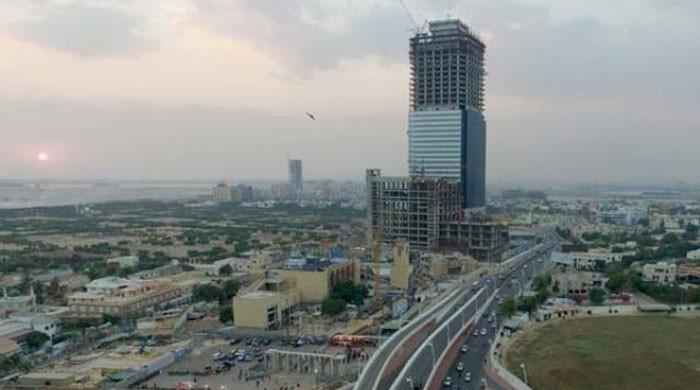
Karachi, Pakistan’s largest city has now become an alien’s hub with population figures already crossing 4.5 million and this excludes Afghans, official sources revealed. No wonder it is so vulnerable to terror networks.
Yet, in the power corridors neither anyone is serious nor ready to take ownership of what is termed mini-Pakistan, though many are still eyeing its rich land.
The city will still be as challenging for the new army chief as it was for General Raheel Sharif, because despite success in the Karachi Operation we are still far from resolving or even addressing its basics.
Unfortunately, the Sindh and federal governments have failed in fulfilling their responsibilities when it comes to planning and execution. With over six thousand katchi abadies providing shelter to millions of non-registered residents, it’s like sitting on a volcano, which could erupt anytime.
Karachi has no infrastructure and whatever it had is now history. Its track for circular railway has been sold to powerful mafias. From illegal water supply to electricity through kunda, all of it is in the hands of mafias.
It may be a belated call, but, if the commercial city continues to be treated in such an unplanned manner, we may continue to see rise in street crimes, target killings, extortion and links between mafias and power elite, who want to see city remains unplanned as it suits them.
Karachi has multiple problems and since the city is divided into multiple civic agencies and no one directly controls the whole city, the situation is getting from bad to worse. The mayor, is not the mayor of whole Karachi, but, only controls 34 per cent. In the absence of one strong civic agency, there is no authority responsible for checking or even keeping the record of massive influx.
Since the last census held in 1998, the growth rate recorded through a formula assigned to the concerned authorities is 3.7 per cent per year. The officials who were approached by this writer also admitted that beside 'aliens,' there has been a massive influx into this city from FATA and Khyber Pakhtunkhwa, but, many are not registered as they lived in 'Katchi abadies,' which are also expanding in large numbers allegedly in conivance with police and concerned officials of civic agencies.
Two important developments are taking place in the coming months. (1) Possible census, which is long overdue and the government still looked non-serious, and (2) the Election Commission of Pakistan, starting the process of voter's registration.
Among the aliens, the highest numbers are Bengalis, which according to their own organisation is over three million. However the figure also includes Biharis. Karachi’s population could reach the staggering figure of 30 million after census, but, the rising growth of population among the 'aliens,' has threatened the city's dynamics as most of them have not even been registered with National Alien Registration Authority (NARA).
Pakistan's commercial hub had never been planned for this kind of growth and the so called planners had wasted billions of rupees in development schemes, which they keep changing and as result earn billions in each project.
At times the city's complexity scares you, particularly for the permanent residents as there is a huge number of people living in the city, who have permanent residence outside and authorities are unaware of it.
According to the information collected by this writer, it was revealed that in the absence of census growth rate of Karachi, has been assessed by NADRA and other concerned authorities at 3.7 per cent increase per year since 1998, with highest percentage seen in District West, which is 5 per cent, because of the presence of Bengali and Pashtoon population.
Officials say, the population growth rate of Bengali, Pashtoons and Afghans are the highest and an average family has six to seven children.
The forthcoming population census would not only have far reaching political and economic implications, but could also surprise many with the exact population of this mega city, which may touch 30 million and it is slowly not only getting unmanageable but also ungovernable.
The census would be followed by delimitation of constituencies and massive increase in the National Assembly and Provincial Assembly seats could set the new political direction of Karachi.
In the absence of 'no strategy' to check the rising influx in the city, either of aliens or temporary residents, the city has become very vulnerable for terror networks, Underworld mafias and pressure groups to 'control' the city particularly its outskirts.
While the only data collecting department, National Aliens Statistics Authority (NASA), is practically dormant for the past several years, the rough figures I got from NADRA, revealed the presence of nearly 4.5 million aliens from 67 communities excluding Afghan refugees. The highest numbers are Bengali's followed by surprising rise influx of Iranian Baluch, Burmese and other nationalities.
NASA, was closed down after complaints of forced registration of aliens by authorities but when the system of voluntarily registration was introduced, it did not get positive response.
It resumed its work few months back and started the registration process but is still finding this process difficult.
Another source of confusion is in the assessment of large number of Afghans, who do not have the status of ' refugees.' Officials said, it is very difficult to collect data of non-afghan refugees, but, they are in several lakhs.
The political dynamics of Karachi, is such that even the national parties think in terms of its ethnic dimensions, which is dangerous. Thus, every political party in this city protecting their respective ethnicity and not thinking like one Nation, which has made this look 'divided,' not 'mini-Pakistan.' Here, only money matters and if you have money, no law can stop you to do any unlawful thing.
Thus, the city has to come under one umbrella and that too above political bias. Karachi also needs a Metropolitan Police system. No operation can give lasting solution and peace to Pakistan's largest city, if we fail in addressing its basic problems. The city is on sale or already sold, no one knows.
—The writer is the senior columnist and analyst of GEO, The News and Jang. He tweets @MazharAbbasGEO





